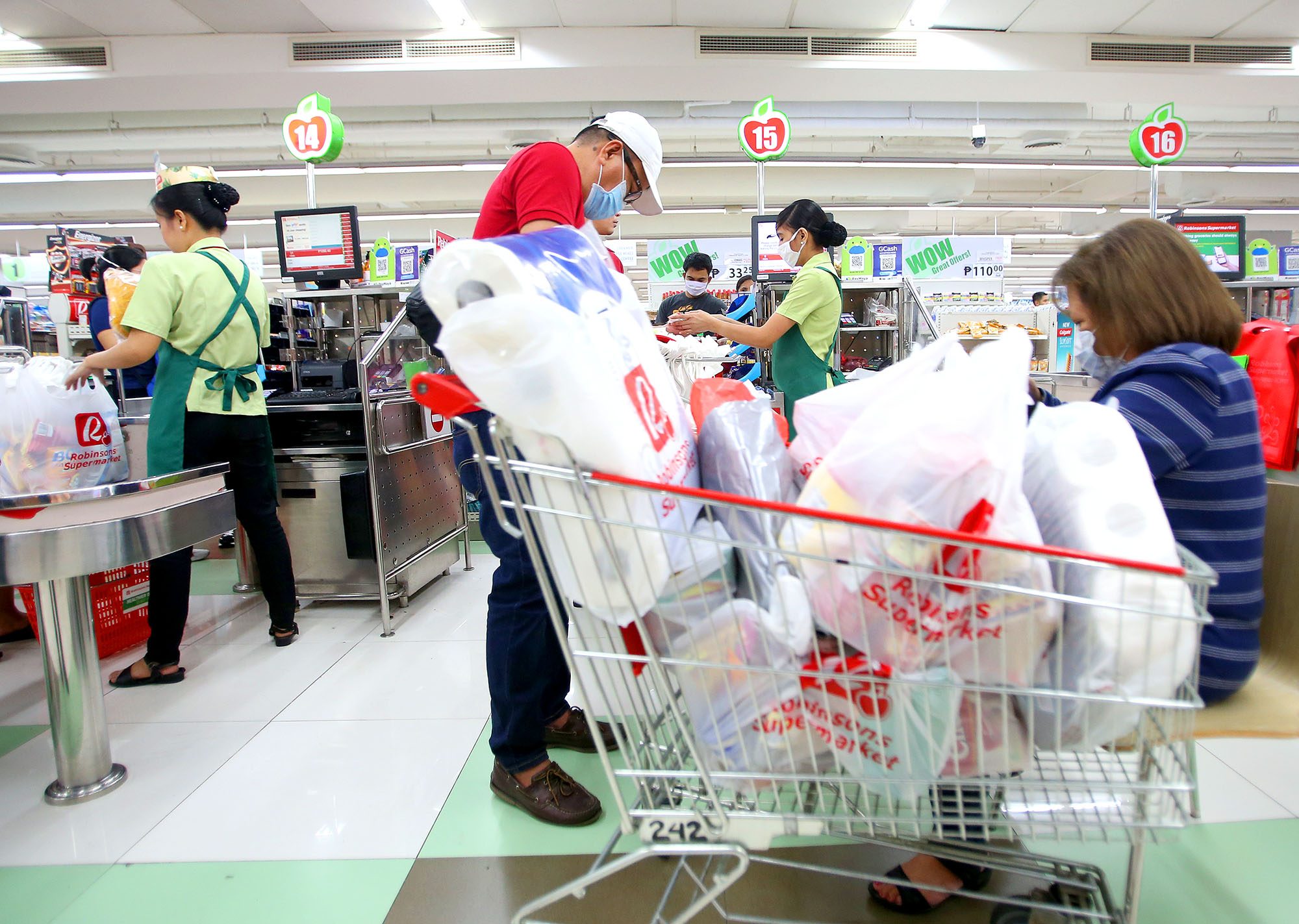SUMMARY
This is AI generated summarization, which may have errors. For context, always refer to the full article.

MANILA, Philippines – The Department of Trade and Industry (DTI) on Thursday, March 12, imposed a nationwide price freeze on basic necessities amid the spread of the novel coronavirus.
“The DTI is closely coordinating with other government agencies, manufacturers, and retailers of basic goods to ensure availability and continuous supply in the market,” said Trade Secretary Ramon Lopez.
“Retailers are reminded that there should be no price movement on these goods while the price freeze is in effect.” (READ: Novel coronavirus: What makes an outbreak a pandemic?)
Basic goods that are under the jurisdiction of the DTI include canned fish and other marine products, locally manufactured instant noodles, bottled water, bread, processed milk, coffee, candles, laundry soap and detergent, and salt.
The Department of Agriculture will monitor prices of basic agricultural goods such as rice, corn, cooking oil, marine products, fresh eggs, fresh meat (pork, beef, and poultry), fresh milk, fresh vegetables, root crops, sugar, and fresh fruits.
Essential drugs are under the Department of Health, while firewood and charcoal are monitored by the Department of Environment and Natural Resources. Household liquefied petroleum gas (LPG) and kerosene are under the Department of Energy.
“All these basic goods are placed under price freeze for 60 days with the exception of household LPG and kerosene whose prices shall be frozen for 15 days only as provided in the Amended Price Act or [Republic Act No.] 10623,” the DTI said.
Trade Undersecretary Ruth Castelo also assured the public that they continue to intensify monitoring of the prices of basic goods in the market, including face masks.
Business establishments found to have violated the price freeze would face a fine ranging from P5,000 to P1 million, and imprisonment up to 10 years. – Rappler.com
Add a comment
How does this make you feel?
There are no comments yet. Add your comment to start the conversation.